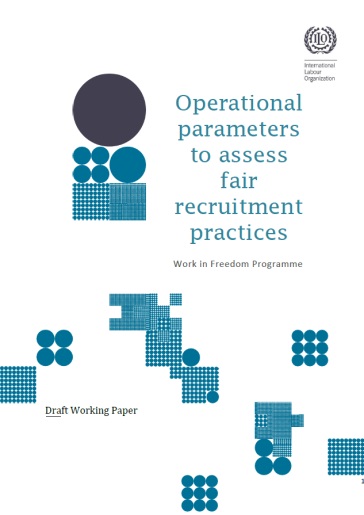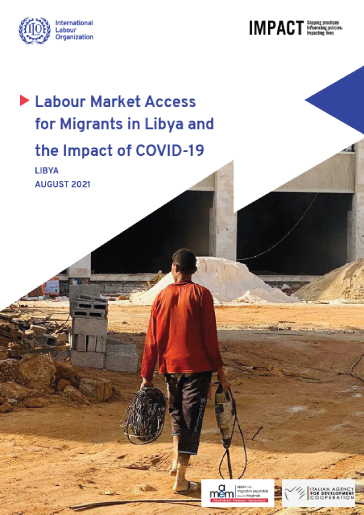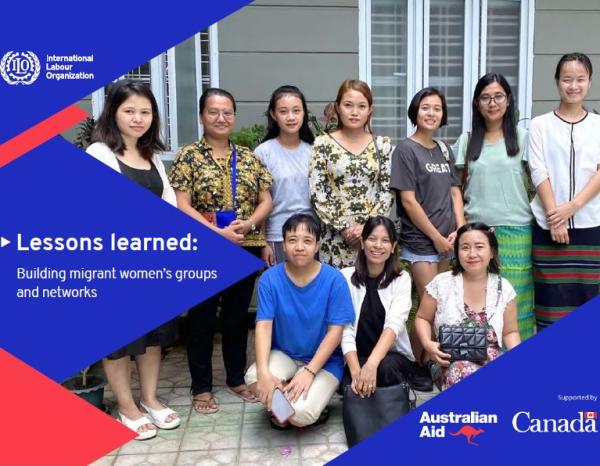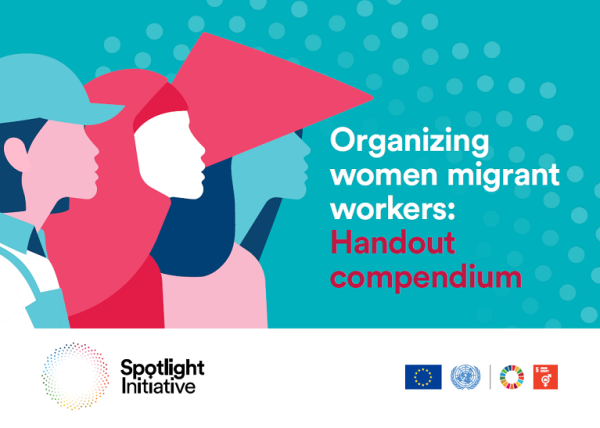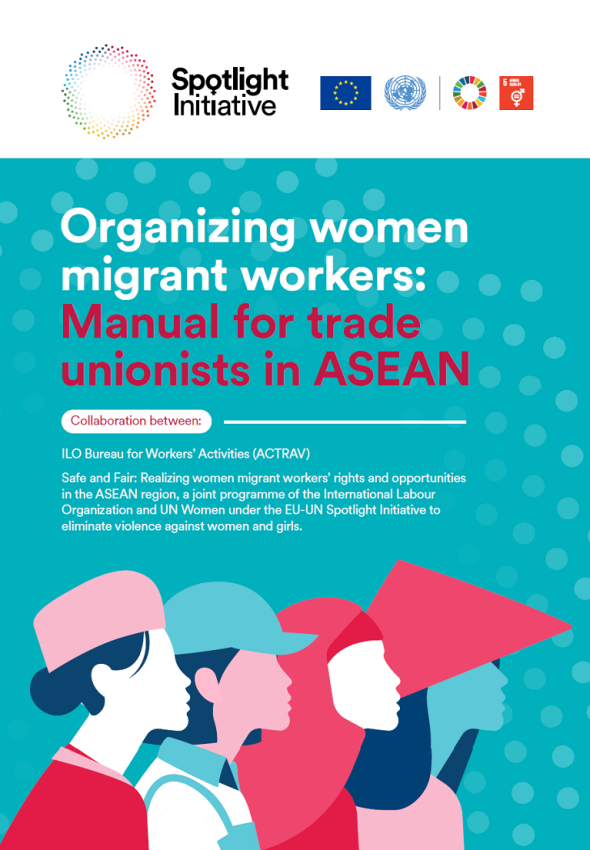Lessons learned: Building migrant women’s groups and networks
The Lessons Learned outlined in this paper draw attention to reflections and good practices from the experiences of building of migrant women’s groups and networks in both countries of origin and destination.
The ILO’s TRIANGLE in ASEAN programme, supported by Global Affairs Canada and Australia’s Department of Foreign Affairs and Trade, recognizes that gender inequalities and discrimination limit the opportunities for women to benefit from migration, restrict women from reaching their full potential and increases the risk of exploitation. Aiming to increase women’s empowerment, TRIANGLE in ASEAN has supported six civil society organizations in Cambodia, Myanmar and Thailand to build migrant women’s groups and networks.
The ten lessons learned outlined in this paper cover practical issues including training of facilitators, the formation and maintenance of groups, and the building of wider networks nationally and cross-border. Other lessons learned address more complex issues that the migrant women’s groups have encountered. The lessons learned, like the groups themselves, are a work in progress. Building networks, tackling sensitive issues, advocating more broadly for the rights of migrant women and deepening the analysis of the complex social, economic and political factors through greater connectivity with social movements are all on the agenda for future interventions.
Women members of groups have gained more confidence, can more openly share and are expressing their opinions. Better informed, with more self-esteem, they are taking their own needs and knowledge into more consideration in decisions about migration. Migrant women’s group leaders are working together to advocate for policy changes and are prepared to tackle societal attitudes which discriminate against women and stigmatize migrant women.
The vibrant, enthusiastic migrant women’s groups built during this project are pleased to share their experiences with the hope that more migrant women will be able to build resilience through starting their own groups and be able to collectively address the inequalities, stigma and exploitation that migrant women currently face.

